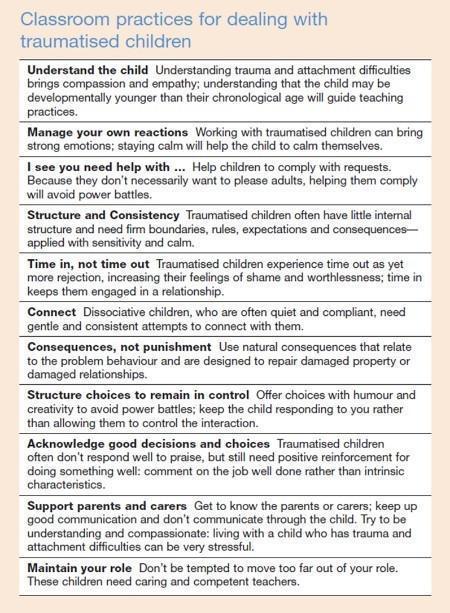Trauma Informed Care Resources
Compassion Fatigue and the Importance of Self-Care
Compassion Fatigue, also known as Vicarious Trauma, occurs when a helping professional develops trauma symptoms as a result of continuously working with traumatized people. To avoid or address the impact of Compassion Fatigue, educators must attend to the ABCs of self-care: Awareness, Balance, and Connection (Pearlman and Saakvinte, 1995). This section is dedicated to information regarding Compassion Fatigue and resources for addressing personal and professional self-care.
Secondary Traumatic Stress: A Fact Sheet for Child-Serving Professionals
Dr. Bruce Perry's Free Online Course on Compassion Fatigue: The Cost of Caring
Printable PDFs
Related Articles
Useful Links
Feeling stressed or overwhelmed?
Guided imagery is a powerful, evidence-based tool proven to help relieve stress and increase relaxation. Try listening to one of these podcasts from Kaiser Permanente and see if you notice any differences in how you feel afterwards.
"Trauma-Sensitive Schools" Training Video Series
These short videos from the Wisconsin Department of Public Instruction provide an excellent overview of what trauma is, what it may look like in the classroom, and best practices for removing barriers to learning for students dealing with trauma.
Trauma Module 1: Introduction to Trauma-Informed Practices in Education
Trauma Module 2: A Sense of Safety
Trauma Module 3: Creating Safety
Trauma Module 4: Relationships
Trauma Module 5: Trauma and the Brain
Featured Item: Calmer Classrooms Resource Guide
The Calmer Classrooms Resource Guideis an excellent source for learning more about the effects of trauma on young people and how we, as educators, can improve the educational outcomes of our students and assist in their healing and recovery. This guide is clear and straightforward in its approach and covers important topics such as the impact of abuse and neglect on learning, along with the importance of self-care for adults working with children dealing with trauma.
